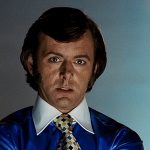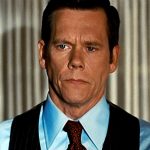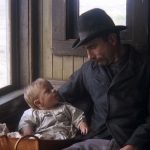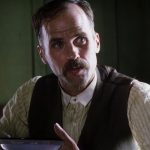Milk – 2008
This was such a very good movie that everybody I know who has seen it has recommended it to me. So, I had pretty high expectations. The problem is that I’m not very political minded. Political dramas usually bore me. And while politics was definitely a key element of the narrative, there was also a human drama that was just as important. His personal life was given a fair amount of screen time.
The movie is about the first openly gay man elected to public office, Harvey Milk, masterfully played by Sean Penn. In the 1950s, 60s, and 70s, homosexuality was widely considered deviant behavior closely associated with rapists, bestiality, and pedophiles. It was common for police to raid gay bars and bath houses to round up the patrons and put them in jail. Well-known public figures like Anita Bryant, only shown in news-reel footage, and John Briggs, played by Dennis O’Hare, went out of their way to demonize homosexuality and actively discriminate against the minority group. And they did it all in the name of religion and protecting the family unit.
But Activist Harvey Milk was brave enough to fight them on their level. While living in the Castro District of San Francisco in the early 70s, he began to fight back against the deplorable treatment of gays and lesbians, and he did so in a way that raised public awareness and acceptance in a positive way. Most of the freedoms, equal rights, and liberties that homosexuals take for granted today are enjoyed because of the early pioneers in the gay rights movement like Harvey Milk.
In 1973 and 1975, he ran for the office of City Supervisor, and in 1976 he ran for a seat on the California State Assembly. Each time he failed, and each time, his devotion to activism and politics was a strain on his partner, Scott Smith, played by James Franco. When Scott finally leaves him, Harvey finds a new lover, Jack Lira, played by Diego Luna. But he is emotionally unstable, and commits suicide.
Then, finally, in 1977, Harvey wins a seat on the San Francisco Board of Supervisors. He meets Dan White, fellow Board member and professional colleague, played by Josh Brolin. At first the two men seem to be allies, but politics is a dangerous game. Sometimes ones morals or ethics might need to be compromised to accomplish a personal agenda. In this, Milk was no different than any other politician. More than once he politically betrayed or embarrassed Dan to fight for gay rights.
You see, Dan white was not portrayed as an evil man. He was not homophobic. He was not a bigot. In fact, I thought he was actually portrayed as a tragic figure. True, he eventually assassinated both Harvey Milk and the San Francisco Mayor, George Moscone, but it wasn’t because of any anti-gay tirade. It was revenge, plain and simple, because he got screwed by those who would become his victims.
And just as an interesting note, White turned himself in to the S.F.P.D. He was convicted of manslaughter instead of murder, based on the claim that he was not in his right mind due to depression. This became known as the Twinkie Defense because one of the symptoms of his depression was binging on sugary foods. This determined that the killings could not have been premeditated since he was not in his right mind. He was given a seven year sentence and was paroled after five. He then committed suicide within two years. But before his death, he confessed in an interview that he had actually intended to kill Milk, Moscone, and two other public employees who had politically opposed him. In light of this confession, the murders were most certainly premeditated, and he should have been convicted of murder.
Sean Penn’s phenomenal performance is what made the movie. He is the kind of actor who really throws himself into a roll. He seemed to embody the spirit of the politician and really deserved the Oscar he won for his performance. He never seemed over the top, never made the character comical or farcical. He was real and believable in every nuance of the part. He was charismatic and yet there was also a vulnerability that was equally as attractive. And in addition to all the noble qualities of the character, he also embraced the flaws of the man and the gravitas of someone familiar with hardship, oppression, and discrimination. Penn was perfect for the role.
Playing Harvey’s aids, Cleve Jones, Ann Kronenberg, Dick Pabitch, Rick Stokes, and Danny Nicoletta, were Emile Hirsch, Alison Pill, Joseph Cross, Stephen Sipnella, and Lucas Gabreel, respectively. I make mention of them all because of something they did at the end of the movie that I really liked. Not only did the cast of actors do a great job, they were shown next to photos of their real-life counterparts, showing how very much they looked like the people they were portraying. The likenesses were remarkable, adding even more believability to the realism of the movie.

























































































